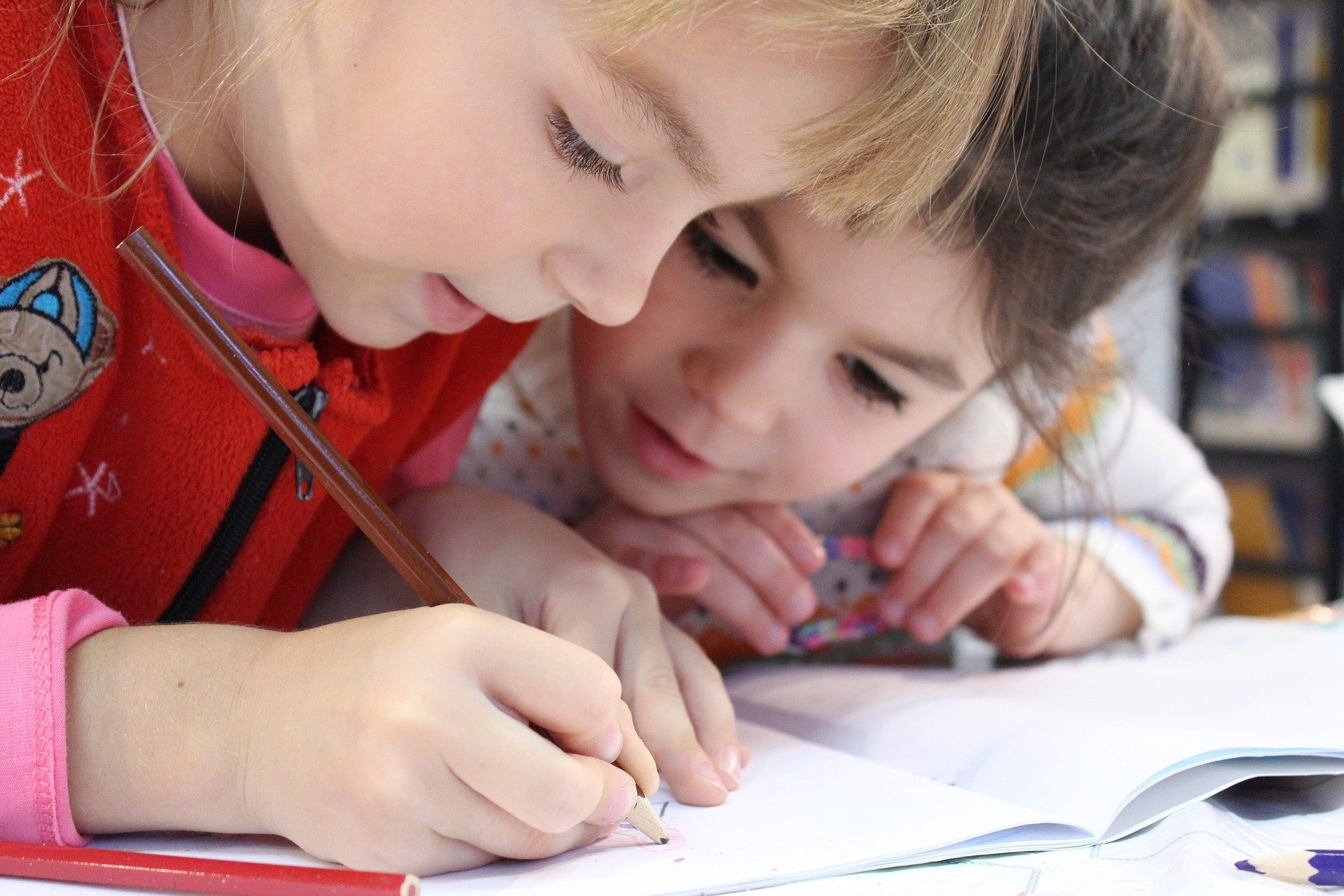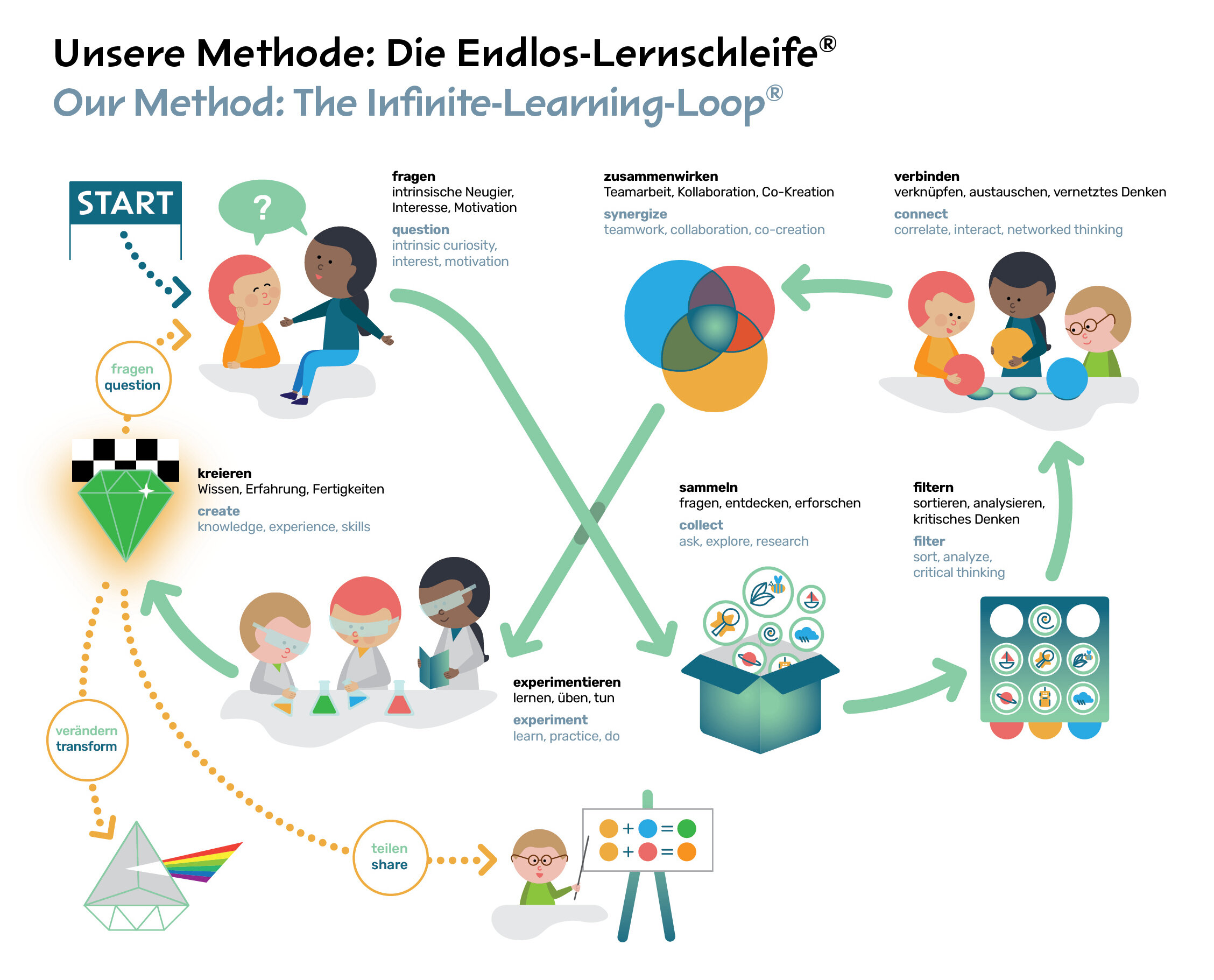Method
"Good teaching is mostly made up of learning, rather than teaching itself."
- Franz E. Weinert
How do children learn at School of Tomorrow?
The School of Tomorrow's learning method is goal-oriented and structured, individual and flexible. The focus is always on the child. There are many different ways to develop and acquire knowledge and skills. This path differs from child to child. The basis lies in trust, the focus on the relationship. It is more important that the child learns how to learn and never loses its innate curiosity and enjoyment of learning than simply storing generalized knowledge.
Individualized - Project-Based - Independent - Fun
Lessons are project-based and therefore interdisciplinary, rather than strictly divided by subject.
The absence of fixed lessons allows for a deeper focus and the ability to stay in the flow, or take breaks when needed.
The individual and "fluid" timetable allows for creativity and intrinsic interest.
Individual learning enables each child to find their own fair and appropriate path.
Personal interests are not a minor matter, but a cornerstone.
Instead of just "covering" a topic, we motivate the children to uncover the topic (actively explore it through questions and experiments) and discover it (from their own perspective and wherever possible in the real world).
Lessons don't feel like traditional school or duty, but more like play, entertainment and social exchange.
Trust as a basis. Measure where useful. Encourage where desired. Motivate where necessary.


